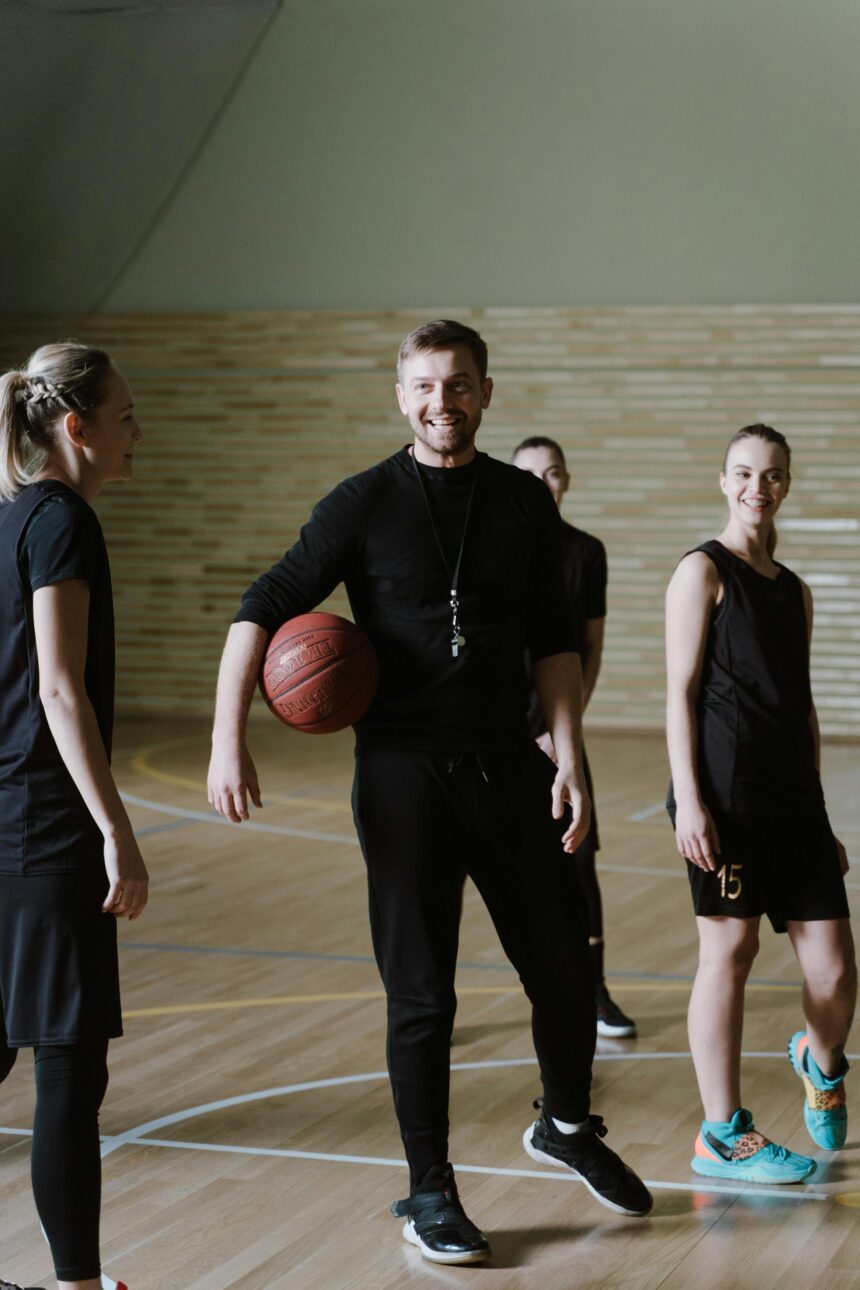Introduction
Mark Cascio’s basketball program philosophy has gained recognition for its emphasis on holistic player development, teamwork, and a positive sports environment. Cascio, a seasoned coach with years of experience, believes that the principles of basketball extend beyond the court, influencing the character and growth of young athletes. This FAQ provides a comprehensive overview of his philosophy, its key components, and its impact on players and teams.
Who is Mark Cascio?
Mark Cascio is an accomplished basketball coach with a proven track record at various levels, including youth, high school, and collegiate basketball. Known for his strategic approach and emphasis on player development, Cascio’s coaching philosophy has been shaped by his experiences both as a player and a coach. His commitment to fostering a positive culture in basketball has made him a respected figure in the sports community.
Core Principles of the Philosophy
Cascio’s basketball philosophy can be encapsulated in several core principles:
1. Player-Centric Development
At the heart of Cascio’s philosophy is the belief that each player is unique and requires tailored development plans. This approach focuses on individual strengths and weaknesses, allowing coaches to create personalized training regimens that maximize player potential. This includes:
- Skill Development: Regular drills focused on shooting, dribbling, and defense tailored to the player’s needs.
- Mental Toughness: Training that emphasizes resilience, confidence, and the ability to handle pressure.
2. Teamwork and Collaboration
Cascio emphasizes the importance of teamwork in achieving success on the court. His philosophy encourages players to understand their roles within the team and to support one another both on and off the court. Key elements include:
- Communication: Encouraging open dialogue among players to foster trust and understanding.
- Shared Goals: Establishing common objectives that unify the team and motivate each player to contribute to the collective effort.
3. Respect and Sportsmanship
Cascio instills the values of respect and sportsmanship in his players. He believes that basketball is not just about winning, but also about how players conduct themselves during competition. This includes:
- Respect for Opponents: Encouraging players to acknowledge their opponents’ skills and efforts.
- Positive Behavior: Promoting conduct that reflects well on the team, including good manners, integrity, and fairness.
4. Holistic Growth
Cascio’s philosophy advocates for the holistic development of athletes. He believes that basketball can teach valuable life skills that extend beyond the sport. His approach includes:
- Character Building: Using basketball as a vehicle for developing traits such as leadership, accountability, and work ethic.
- Life Skills: Emphasizing time management, goal setting, and perseverance, preparing players for challenges both in and out of sports.
5. Fun and Enjoyment
A critical aspect of Cascio’s philosophy is ensuring that players enjoy the game. He recognizes that a positive experience leads to greater commitment and long-term participation in basketball. This includes:
- Creating a Positive Atmosphere: Encouraging a supportive environment where players feel valued and motivated.
- Celebrating Achievements: Acknowledging both individual and team accomplishments, no matter how small, to foster a love for the game.
Implementation of the Philosophy
Cascio’s philosophy is implemented through structured practices, game strategies, and team-building activities. Here’s how it works in practice:
1. Structured Practices
Practices are designed to align with the core principles of his philosophy. Each session includes:
- Skill Development Drills: Focused training that caters to individual needs and team dynamics.
- Team-Building Exercises: Activities that enhance camaraderie and communication among players.
2. Game Strategy
Cascio emphasizes strategic thinking during games. This includes:
- Situational Awareness: Teaching players to read the game and make smart decisions under pressure.
- Adaptability: Encouraging players to adjust their strategies based on opponents and in-game circumstances.
3. Regular Feedback
Feedback is an essential part of player development. Cascio ensures that:
- Constructive Criticism: Players receive guidance that is specific and actionable, helping them improve.
- Self-Reflection: Players are encouraged to evaluate their performances and set personal goals for growth.
Impact on Players and Teams
Cascio’s philosophy has a profound impact on players and teams, evidenced by:
1. Improved Performance
Teams that adopt Cascio’s philosophy often see enhanced performance on the court. Players develop better skills, teamwork, and understanding of the game, leading to more competitive teams.
2. Positive Team Culture
The emphasis on respect, sportsmanship, and enjoyment fosters a positive team culture. Players feel valued and motivated, which can lead to higher retention rates and greater team cohesion.
3. Character Development
Players emerge from the program not just as better athletes but as well-rounded individuals. The life skills learned through basketball prepare them for challenges beyond the court, helping them succeed in their personal and professional lives.
Frequently Asked Questions
1. How does Mark Cascio define success in basketball?
Cascio defines success as the overall development of players, both as athletes and individuals. Winning is important, but personal growth and teamwork take precedence.
2. What age groups does Cascio’s philosophy cater to?
Cascio’s philosophy is adaptable to all age groups, from youth players to adults, focusing on their developmental needs and experiences.
3. Can this philosophy be applied to other sports?
Yes, many of the principles outlined in Cascio’s philosophy—such as teamwork, respect, and holistic development—are applicable across various sports and activities.
4. How can coaches implement this philosophy in their programs?
Coaches can start by emphasizing player development, creating a positive environment, and fostering open communication among players. Training sessions can be designed to focus on both skills and teamwork.
5. What resources are available for coaches interested in this philosophy?
Coaches can seek out books, workshops, and online courses focused on coaching philosophy and player development. Engaging with the basketball community through forums and networks can also provide valuable insights.
6. What role do parents play in this philosophy?
Parents are encouraged to support their children’s development by reinforcing the values of respect, sportsmanship, and enjoyment of the game. Their involvement can enhance the overall team culture.
7. How can players benefit from this philosophy?
Players benefit by developing not only their basketball skills but also important life skills, such as teamwork, leadership, and resilience. They learn to appreciate the game and build lasting relationships with teammates.
Conclusion
Mark Cascio’s basketball program philosophy emphasizes the holistic development of players, fostering an environment where skill, teamwork, respect, and enjoyment coexist. By focusing on these core principles, coaches and players can create a meaningful experience that extends beyond the basketball court. As youth sports continue to evolve, philosophies like Cascio’s remind us of the importance of character and personal growth in shaping not just better athletes, but better individuals. If you’re a coach, player, or parent involved in basketball, consider how these principles can enhance your approach to the game.
4o mini




